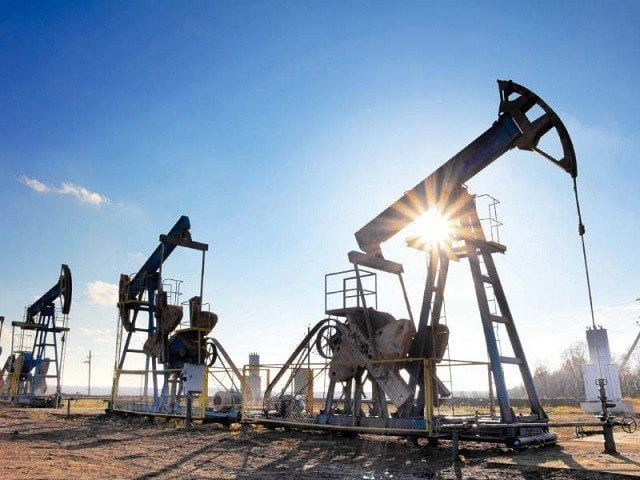Oil prices hold near $67 ahead of G20 talks, OPEC meetings
US President Donald Trump and Chinese President Xi Jinping to meet on Saturday

US President Donald Trump and Chinese President Xi Jinping to meet on Saturday. PHOTO: Reuters
Brent crude futures were up $0.07 at $66.62 per barrel by 1033 GMT. US West Texas Intermediate (WTI) crude futures were up $0.12 at $59.55 a barrel.
Brent was on course for a gain of around 25% in the first half of 2019 and WTI for a 30% gain.
Leaders of the G20 countries meet on Friday and Saturday in Osaka, Japan, but the most anticipated meeting is between US President Donald Trump and Chinese President Xi Jinping on Saturday.
A trade dispute between the world's two biggest economies has weighed on oil prices, fanning fears that slowing economic growth could dent demand for the commodity.
"While there are no expectations of a truce between the two parties, it will set the scene for the OPEC meeting a couple of days later," ANZ Bank said in a note.
Trump said on Wednesday a trade deal with Chinese President Xi was possible this weekend but he is prepared to impose US tariffs on most remaining Chinese imports should the two countries disagree.
"Even if US-China trade talks turn positive, we think OPEC will extend the current production cuts until the end of the year. However, deeper cuts look unlikely, given the rising supply issues," ANZ said.
The Organisation of the Petroleum Exporting Countries (OPEC) and some non-members including Russia, known as OPEC+, will hold meetings on July 1-2 in Vienna to decide whether to extend their supply cuts.
"The market sentiment is that OPEC+ will agree to extend cuts, but after all what matters is how deep the cuts will be and how much Saudi Arabia and Russia will curb," said Kim Kwang-rae, a commodity analyst at Samsung Futures in Seoul.
OPEC+ members agreed to curb oil output by 1.2 million barrels per day from January 1.
Russian President Vladimir Putin said in an interview with the Financial Times on Thursday that the OPEC-led supply cut helped stabilise oil markets but did not say whether Russia was prepared to extend the deal.
Tensions between the United States and Iran have also been keeping markets on edge.
A week after US President Donald Trump called off air strikes on Iran at the last minute, the prospect that Tehran could soon violate its nuclear commitments has created additional diplomatic urgency to find a way out of the crisis.


















COMMENTS
Comments are moderated and generally will be posted if they are on-topic and not abusive.
For more information, please see our Comments FAQ